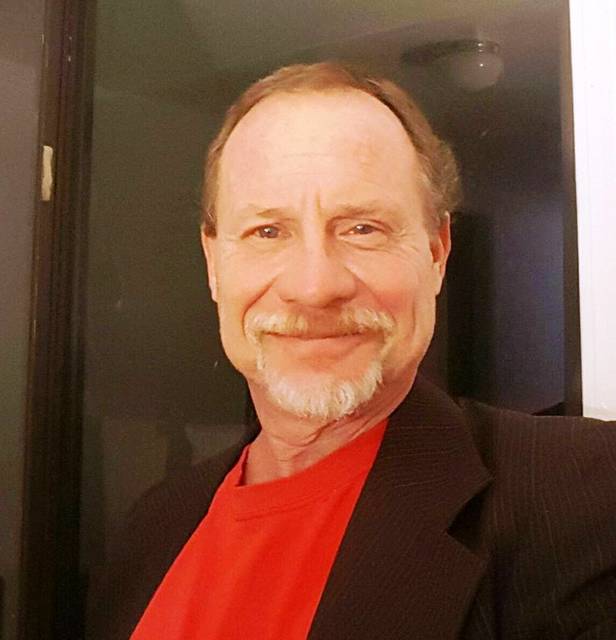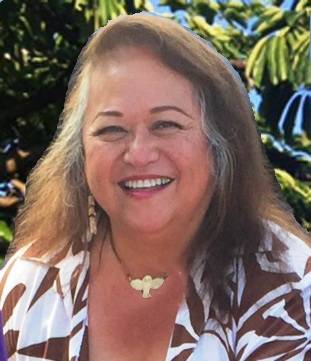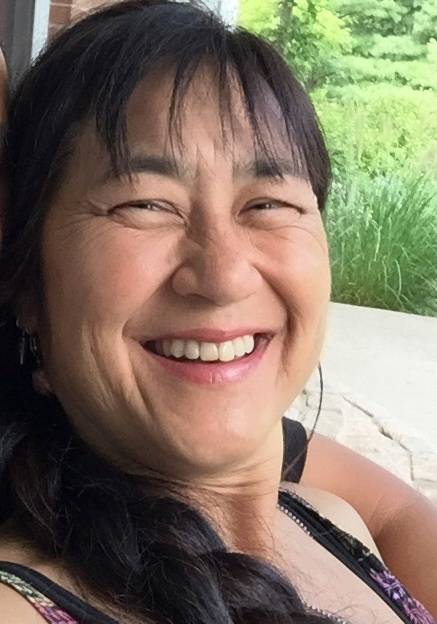Incumbent South Kona/Ka‘u Councilwoman Maile David faces not one, but two, challengers to the seat she’s held on the council for the past four years.
Her two opponents, Richard Abbett and Yumi Kawano, offer novel solutions to the county’s crippling budget crisis and continual homelessness. Abbett seeks a legal cannabis economy, where the tax revenues would pay for needed services. Kawano pitches a public work program that would employ homeless individuals to care for the island.
District 6 includes Volcano Village, Hawaiian Orchid Island Estates, Pahala, Punaluu, Naalehu, South Point, Ocean View, Milolii, Hookena, Honaunau, Keei, Napoopoo, Captain Cook, part of Kealakekua, Keopuka Heights, Kona Hospital and Keopuka Kai.
To win in the Aug. 11 primary, the top vote-getter must win more than 50 percent of the votes cast. Otherwise, the top two winners will face off in the general election.
David, 65, of Hookena, was certified as a paralegal after training at the University of Hawaii at Hilo, and worked as a judicial assistant to former 3rd Circuit Court Judge Elizabeth Strance, as well as legislative specialist and then deputy county clerk to the County Council.
David said her most significant accomplishments in her recent council term deal with emergency management issues.
She sponsored a bill requiring the County Council be notified of proposed changes to special flood hazard areas. The bill was approved by her council fellows and became law.
“This notification requirement allows the public an opportunity to consider and comment upon proposed changes to flood maps that may affect risk premium rates and floodplain management requirements,” David said.
She’s also been working with the state Emergency Management Agency to secure a location for an emergency siren at Hookena Beach, listed as the No. 1 priority for new siren locations.
Housing and relocation efforts in the wake of the volcano emergency are among David’s top priorities for the next term, if she’s re-elected. Sprawling District 6 has a host of other needs as well, she said, including road resurfacing, transfer stations and abandoned vehicle removal.
Abbett, 61, of Waihinu, a self-employed consultant, holds a bachelor’s degree in public policy development and administration from Evergreen State College in Olympia, Washington. He unsuccessfully ran for the council in 2014, and sought to upend former state House Speaker Joe Souki of Maui in 2016. Souki resigned earlier this year as part of a sexual harassment settlement agreement.
Abbett said he’s running because ordinary people also need to be a part of government.
“We need to improve the quality of life of the average person and the upcoming generations,” Abbett said.
If elected, Abbett said he’d continue work he’s already started to persuade the state to legalize cannabis. Being able to promote and tax cannabis sales would bring in tourists and greatly improve the county’s financial status, he said.
“Our commitments are beyond our resources,” Abbett said. “We’re slowly missing opportunity after opportunity. … This has to be done now.”
Although cannabis legalization is a state not county issue, Abbett said the County Council can still play an important role by working with the state to set up a plan that would let counties opt out if they were so inclined.
Kawano, 57, of Volcano, is a forester-conservationist and former teacher who has a bachelor’s degree in environmental biology from Fort Lewis College in Durango, Colorado, and a master’s in elementary and secondary education from Pacific University, Eugene, Oregon.
Kawano said she’s running because her experience on volunteer committees has shown her that government is rarely listening to the people.
“I want to bring all the people together,” she said. “It’s ‘we the people.’ It’s a democracy here, but people forget.”
The first issue Kawano would address is the problem of homelessness, which is a complex problem involving not just housing, but employment and substance abuse, she said. She envisions a work program much like the Civilian Conservation Corps work relief program implemented during the Great Depression.
“We can beautify our island and help people help themselves,” Kawano said.









Kawano that ain’t gonna work homeless not looking for work. Abbett, we have enough potheads legal and illegal.